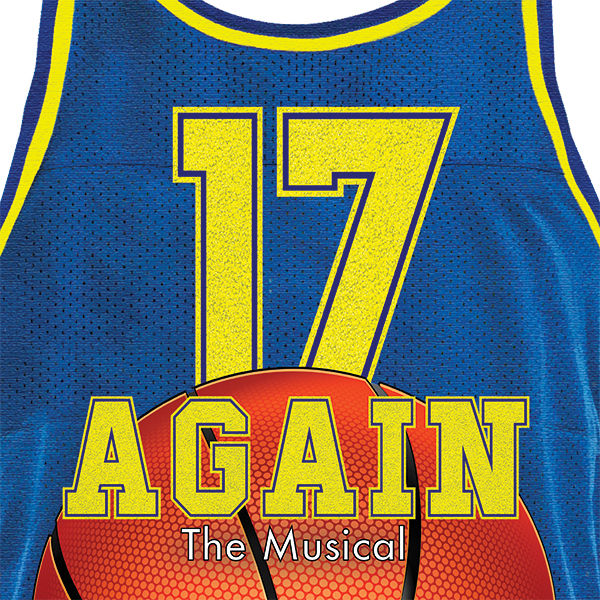REVIEW: Rotterdam - Underground Theatre Company at Queensland Multicultural Centre
- Jul 11, 2024
- 3 min read
Underground Theatre Company’s production of Rotterdam, written by Jon Brittain, is a beautiful work that explores the complexities of gender identity, self-discovery, and the fluidity of human experience. Directed by Tai Kane-Potaka, this play doesn't shy away from the harsh realities of changing identities and societal labels, but also finds moments of joy and humour amidst the challenges.

After seven years in a relationship with her girlfriend, Alice is finally prepared to reveal her lesbian identity to her parents when Fiona drops a bombshell - he's always felt like a man born in a woman's body and is wanting to embrace life as Adrian now. This revelation leads Alice to question her own sexuality - does this make her straight? And as if that wasn't enough, throw in Alice's ex-boyfriend/BFF/Adrian's brother Josh, and the lively lesbian co-worker Lelani into the mix for some extra spice.
Join Alice and Adrian as they navigate life in their cozy apartment in Rotterdam, Netherlands. Aimee Sheather has created a set that is both intimate and inviting, complete with twinkling lights, a sofa, a coffee table, and a kitchen island, setting the perfect backdrop for the domestic scene where most of the action unfolds. The set immediately pulls us into these characters' lives as Alice frantically types on her computer while Fiona dances around the apartment to combat boredom.
Quinny Niamh captures the emotional and physical hurdles of transitioning from Fiona to Adrian. The audience is taken along on this journey with Adrian, witnessing moments of frustration, isolation, and excitement, all of which are portrayed with a genuine emotion. Quinny's heartfelt performance highlights the resilience and bravery needed to undergo such a profound personal transformation. Rachael Woodnett delivers a captivating performance in the role of Alice. She brings to life the internal struggle and emotional turmoil that Alice experiences as she grapples with her partner's transition and confronts her own sexuality in the process. Rachael's portrayal is marked by a deep vulnerability as she grieves the loss of her girlfriend in private, enabling the audience to deeply connect with Alice's perspective.

The dynamic between Adrian and Alice is particularly compelling. Their arguments are raw and highly realistic, allowing the audience to empathise with both characters. Adrian's line, “I’m not asking to change the world, I just want to be seen for who I am,” is especially moving. Since the show was only performed for a single weekend, I feel comfortable spoiling that the bittersweet breakup scene is profoundly impactful. Alice’s realisation that she cannot compromise her own identity, despite her love for Adrian, is both heartbreaking and empowering.
Stephanie Hope brings a refreshing lightness to the story through her portrayal of Lelani, the lively and chatty Dutch girl at Alice's workplace. The character's charm and playful demeanour, combined with Stephanie's excellent comedic timing and flawless accent, make her a magnetic presence in every scene. As Lelani introduces Alice to the vibrant side of Rotterdam, the undeniable chemistry between them is palpable.
Jackson Paul completely embodies the character of Josh, Alice's former partner and Adrian's big brother. Let's applaud his character in handling the drama of his ex dumping him for his sister, then stepping up to help his sister's transformation into Adrian. Jackson fits into this role like a glove, effortlessly juggling that mix of slightly clueless but sweet and highly supportive yet firm in setting boundaries.

Under the direction of Tai Kane-Potaka, Rotterdam becomes more than a play about gender and sexuality; it’s a powerful narrative about personal growth and the challenges of change. It fearlessly dives into the gender identity maze, showing how one person's transformation can shake up the world around them. I especially enjoyed the analogy of our transition from having a Queen to a King, after seven decades of it being the norm, to illustrate that change takes time, patience, and understanding. The Queensland Multicultural Centre provides an ideal backdrop for this short narrative, offering a modern and comfortable space. Inventive elements like bubbles to simulate weed smoke, and balloons and confetti for fireworks, add a whimsical touch, while the lighting and sound design by Ee Thung and Hannah Page further enhance the friendly and intimate ambiance.
From start to finish, Rotterdam captivates with its raw emotions, witty dialogue, and stellar performances. The audience's response—laughter, gasps, and moments of palpable silence—testifies to its impact. At a time when discussions about gender identity and sexuality are becoming more prominent, Rotterdam is an important piece that opens up conversations about acceptance, understanding, and the importance of being true to oneself. The Underground Theatre Company's production is a shining example of how theatre can challenge conventions, celebrate diversity, and push boundaries. Rotterdam is a triumph for the company, engaging, thought-provoking, and beautifully executed, leaving a lasting impression on this reviewer.







Comments